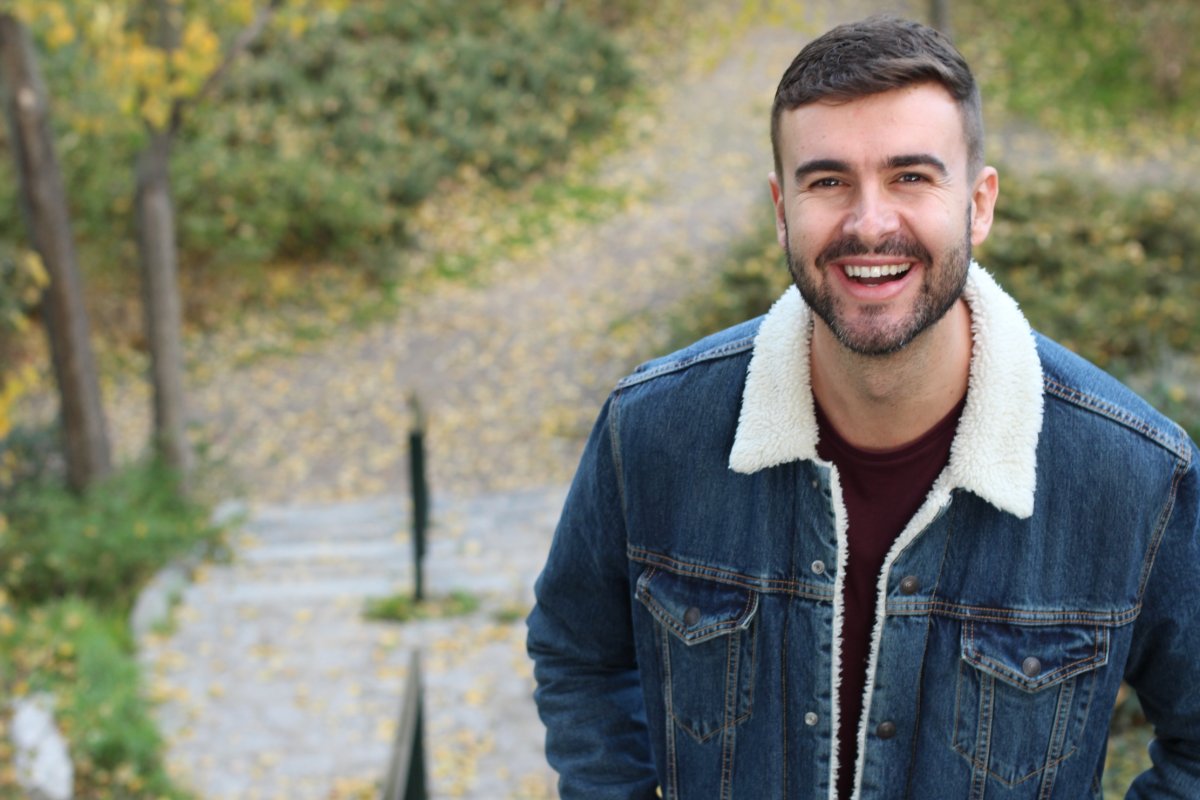NRTH Residential Program
Overcoming Obstacles | Achieving Independence | Building a Brighter Future
A New Road to Healing for Male Individuals Seeking Support
If you’ve been told your needs are “too complex,” hope (and a team that won’t turn you away) lives in Utah at New Roads Behavioral Health. Our NRTH (New Road to Healing) program was created to give men a calm space, a practical schedule, and a team committed to meaningful, lasting change.
Using an Assertive Community Treatment (ACT) team that offers well-rounded mental health support, valuable resources, and compassionate care, our NRTH residential program helps male individuals find lasting relief from severe and persistent mental health conditions. From schizophrenia and bipolar disorder to borderline personality disorder (BPD) and even complex neurological conditions, our highly trained clinicians provide a safe space for patients to heal, grow, and get as close as possible to leading a completely independent life.
We meet people where they are, partner closely on individual goals, and show them how to build a life worth living — one routine, relationship, and skill at a time. Oftentimes, male patients come to us struggling to function in their daily lives or confidently re-enter society, and it’s our mission to remind them that:
- Healing is always possible.
- Every person deserves a chance to live a meaningful life.
- At New Roads, they will always have someone in their corner who genuinely cares.
If you or a loved one would like to learn more about our assertive community treatment program or verify that your insurance is in-network with our Utah facility, speak with our admissions team.
Why Choose Residential Mental Health Treatment?
Residential care offers a therapeutic setting where clients can stabilize their emotions, develop healthy coping strategies, and practice life skills with understanding and accountability. It also provides a safe, structured environment with around-the-clock support, allowing for intensive focus on recovery without the constant distractions and stressors of daily life.
For individuals managing serious health conditions, a mental health residential program lets them benefit from an intentional schedule, a multi-disciplinary team, and step-down options that keep momentum going long after discharge. Treatment plans are tailored to each individual’s needs, goals, and past experiences. Patients gain access to a community of male peers who are walking similar paths and are deeply committed to recovery, which is a comforting and encouraging dynamic that other treatment models don’t offer.
More intensive than general outpatient programs, residential care is especially ideal for those who have already tried other types of treatment and walked away feeling discouraged or unsuccessful. With continuous, 24/7 therapeutic support, our NRTH residential program is designed for male individuals who have experienced any of the following:
- You’ve done the work in outpatient therapy, but you still feel stuck, overwhelmed, or unable to sustain change on your own.
- You’re suffering from hallucinations, voices in your head, or distorted thoughts that make it hard to tell what’s real or to feel grounded.
- Trauma symptoms such as flashbacks, nightmares, dissociation, or panic have become too intense to manage in your current environment.
- You’re struggling to stay safe, whether from self-harm urges, suicidal thoughts, or an environment that doesn’t support recovery.
- You’re seeking a coordinated team of therapists, psychiatrists, and wellness professionals who can address every aspect of your healing in one supportive setting.
- You’re navigating more than one challenge (like depression, anxiety, trauma, or substance use) and need a space equipped to treat it all together.
Whatever you’ve been carrying, our residential team is here to provide the safety, expertise, and compassion you need to start feeling like yourself again. If you’re ready to talk, we’re ready to listen. Your story matters, and so does your future.

Evidence-Based, Person-Centered, and Collaborative
Our Therapeutic Approach at New Roads Behavioral Health
At New Roads, healing begins with connection: to yourself, a trusted care team, and a supportive environment designed for growth. As a nonprofit, therapist-led program, we specialize in treating complex mental health conditions, with deep expertise in Borderline Personality Disorder and related challenges.
Here, therapy looks different for everyone. Clients take part in evidence-based approaches like Dialectical Behavior Therapy (DBT), Cognitive Behavioral Therapy (CBT), and mindfulness-based practices, alongside creative and experiential therapies that make healing feel real and personal. Surrounded by Utah’s quiet mountain landscape, clients find space to slow down, learn new skills, and rebuild a sense of peace — one day at a time.
Dialectical Behavioral Therapy (DBT) Integration
As part of our NRTH residential program, clients can participate in skills groups (e.g., mindfulness, life skills, distress tolerance, interpersonal effectiveness) and individual sessions with trained therapists. DBT residential treatment teaches them how to self-regulate strong emotions, communicate needs effectively, and navigate conflict in real time.
Assertive Community Treatment (ACT) Program
Our ACT team at New Roads consists of certified therapists, the NRTH Program director, two case managers, a psychiatrist, a psychiatric nurse practitioner, a medical assistant, and other ad hoc members.
Every morning, our full team comes together to talk through each client’s progress and plan the day’s care, from therapy sessions and vocational training to case management and recreation. During these meetings, we also review how medications are working and make careful adjustments as needed to support each person’s well-being.
In ACT care, progress doesn’t depend on one provider. Clients receive the strength of an entire team working together to keep them heavily supported, stable, and moving toward independence.
Life Skills Training
At New Roads, we understand that when you’ve spent years simply trying to get through each day, it can be hard to focus on building the skills that make life feel steady and fulfilling. That’s why life skills training is a core part of our NRTH program.
Clients learn (and practice) the everyday skills that support true confidence and independence, from keeping a living space organized to managing schedules, budgeting, cooking, and preparing for job interviews. Each step is guided, hands-on, and personalized to meet every individual where they are.
Because healing isn’t just about feeling better; it’s about learning how to live well in every season.
Individualized Treatment Approaches
Our goal is to help every client move toward lasting stability and a meaningful life out in the community. Once clients feel ready, we gently encourage them to begin reconnecting with the world beyond residential care, at a pace that feels safe and supported.
Case managers work one-on-one with each person to explore what that next step looks like, whether it’s volunteering, enrolling in vocational training, finding a part-time job, or discovering healthy recreational activities that bring purpose and joy.
Discover what makes New Roads different, and how our collaborative approach helps recovery stick.
Life Inside the NRTH Residential Program
At New Roads Behavioral Health, chronic mental illness treatment is meant to feel hopeful, empathetic, and sustainable both in and out of our facility. From full-time staff availability and personalized 1:1 sessions to plenty of opportunities for fun, our NRTH program gives male clients access to the treatment they need while still allowing them to enjoy life.
While living on campus, here’s what clients can expect as part of their treatment plan:
Random Drug Testing+
Drug testing is the most obvious way to tell whether a client’s recovery process is on track or if they need additional help with relapse prevention.
Medical Management+
Many of our clients require regular medication to help them manage mental health disorders or other conditions. We will help them stay on schedule, refill their prescriptions, and ensure their medical well-being. (Additional costs will apply.)
24/7 Staff Availability+
In case of emergency, personal crisis, or any other need, our clients can contact staff members at any time, day or night.
Group Sessions+
These group therapy meetings typically focus on one aspect of treatment at a time, allowing clients to come together to practice their recovery skills. Topics include DBT, cognitive behavior, life skills training, and more.
Individual Sessions+
It is important for all our clients to have a safe space to talk to a knowledgeable, caring professional. One-on-one time with a therapist allows them to share their thoughts, feelings, and concerns without fear of judgment, and helps us determine how best to support their recovery.
Family Sessions+
As family members, your support is crucial to your loved one’s healing process. If you cannot attend in person, these meetings can take place over the phone or via Skype.
Residential Facility+
Our residential facility at New Roads Behavioral Health is located in Utah. Our certified clinicians have 160+ hours of specialized training and receive continuing education to provide the best medical, psychological, and group therapies.
Recreation+
Our treatment programs incorporate various recreational activities, including bowling, skiing, basketball, hiking, and more.
Transitional Program+
For some of our clients, residential care alone isn’t quite enough to help them get back on their feet. Our transitional program provides these individuals with ongoing medical oversight and therapeutic support, while helping them build the skills they need to move forward.
We offer semi-independent apartment living, life skills training, education and internship opportunities, and more — all geared toward ensuring a healthy, successful, and sober future.
Life After NRTH: Step-Down and Transitional Support
Healing doesn’t end when you step outside our doors. It simply continues as you build your life with new strength and support. With New Roads, clients can transition to the right next level of care and keep working with a team that knows their story:
- Outpatient and Aftercare: Keeps recovery moving with steady, therapist-guided support you can access while living at home. Expect individual and group counseling, Cognitive and Dialectical Behavior Therapy (CBT/DBT), relapse-prevention planning, educational classes, and random drug testing, with a customized plan that fits work or school and is open to all ages and genders.
- Transitional Living: Bridges residential care and everyday living with off-campus, supported apartments and about 20 hours per week of clinical and group therapy participation. Once they’re ready for more independence, clients are encouraged to build real-world routines while staying connected to therapy, psychiatry, case management, and on-site staff support.
FAQs About Our NRTH Mental Health Residential Program
What’s the difference between residential treatment and inpatient psychiatric care?
How does ACT help after I transition out of residential care?
Do you accept insurance and how does verification work?
Yes. New Roads Behavioral Health is in-network with most major insurers. Our admissions coordinators will gather all necessary information, verify benefits, and explain coverage so families understand the next steps before admission.
How long do clients typically stay?
This continuum of care allows us to adjust treatment intensity based on progress, so clients stay supported as they grow, rather than being left on their own too soon. Because while symptoms may ease early on, ongoing support is what turns short-term relief into long-term resilience.
Can families be involved in treatment?
Do you treat co-occurring substance use?
Is NRTH a good fit if other programs haven’t worked for me or a loved one?
Related Programs and Resources
Our WRTH (Women’s Road to Healing) program exists to help young women, ages 18–28, get the healing and support they need for their mental health. With dialectical behavior therapy, dual diagnosis treatment, and a specialization in borderline personality disorder, our highly skilled team teaches women essential life skills and coping strategies for a brighter future.
Outpatient
Schizophrenia Treatment
Borderline Personality Disorder Treatment
Bipolar Disorder Treatment
At New Roads, we have treatment programs specifically designed to help those living with bipolar disorder. Through a well-rounded therapeutic team, individual counseling, life skills training, customized treatment plans, and proven therapy models, our facility teaches people how to overcome bipolar disorder. On campus, clients get hands-on help regulating intense emotions and mood swings, managing prescription medications, setting and reaching specific goals, and eventually achieving independence.
Take Back Your Life
Your road to healing and happiness starts with a single, brave first step. When you’re ready, our team at New Roads Behavioral Health in Utah is here to help.
Request to be contacted below by filling out your information.






